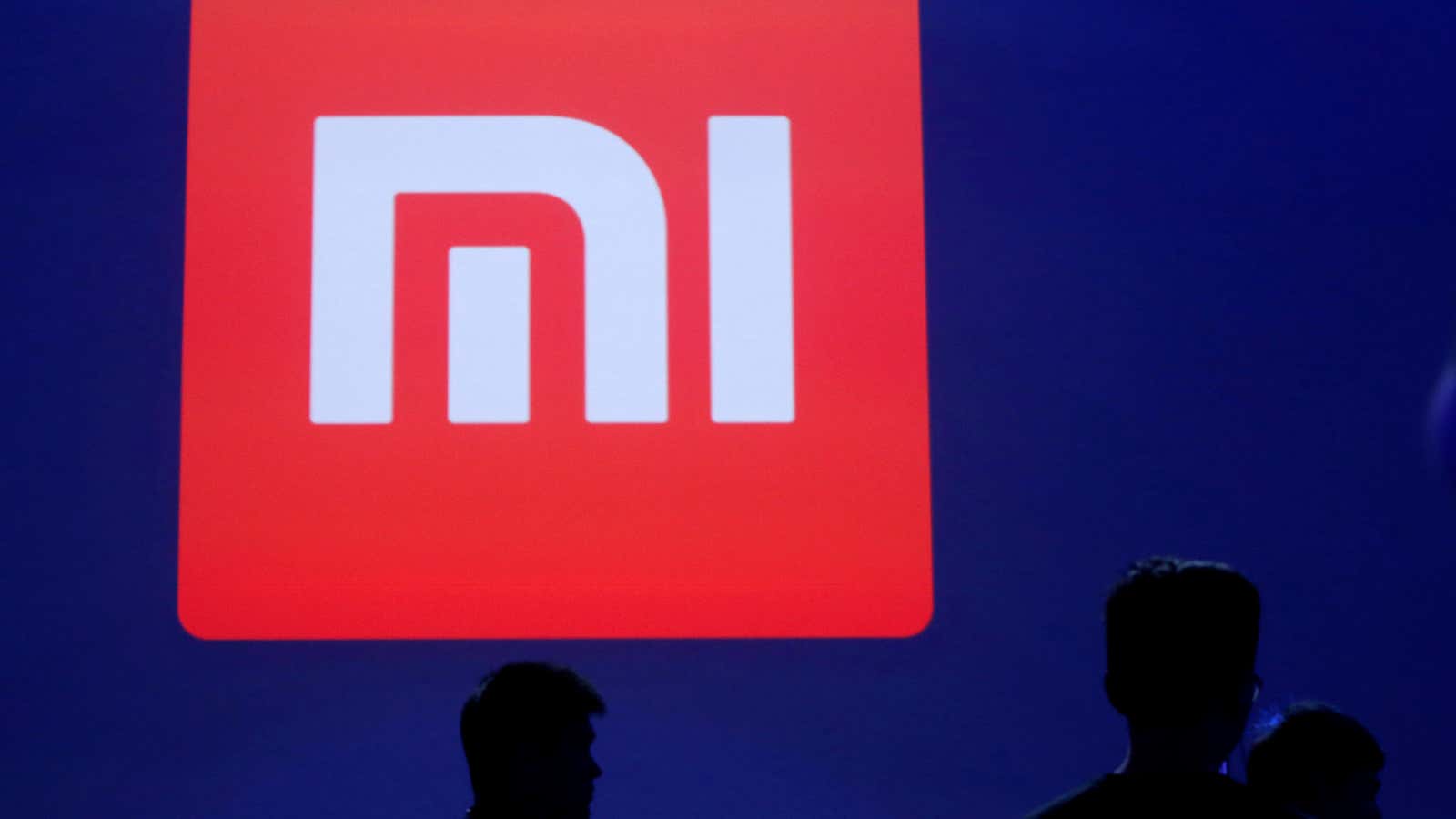Chinese companies are usually very good at toeing the ruling Communist Party’s line on political issues like the Hong Kong protests. And those who exhibit any confusion about exactly where that red line is are quickly schooled.
Chinese tech company Xiaomi, the fourth-largest smartphone maker globally, is a case in point. The company was attacked by Hunaqiu.com, a website operated by hawkish state-owned tabloid Global Times, after an advertisement for a TV from the company’s budget brand appeared to make a reference to a rallying cry of the Hong Kong protesters.
“Five platforms, not one less,” was the slogan in an ad for Redmi’s first smart TV product, which was posted on Chinese social media platform Weibo on Tuesday (Aug. 27), in reference to the five video-streaming platforms supported by the television set, including those offered by iQiyi and Tencent Video. The caption is rather similar to the “five demands, not one less” slogan chanted by Hong Kong protestors who were initially fighting against a controversial extradition bill but now have five key requests.
These include a full withdrawal of the now-suspended bill, an independent investigation into allegations police brutality during the demonstrations, the retraction of the classification of protesters as “rioters” by police, an amnesty for arrested protesters, and last but not least, full universal suffrage for choosing the city’s leader and lawmakers.
While most Chinese internet users paid little attention when the ad was published on Weibo, as the five demands have not been widely reported on the mainland due to broad censorship of the Hong Kong protests, Hunaqiu was quick to jump in. “Brainless, incurable,” it posted (in Chinese) on its official Weibo account, along with the ad, prompting the smartphone maker to quickly pull it from its official Weibo account. It soon published a new ad with only one phrase: “Huge content.” Huanqiu replied to the change with a thumbs up emoji, praising the company for correcting its mistake quickly on Weibo.
It is unclear whether the episode was a pure coincidence, or an intentional attempt to leverage a trending topic on the part of the company, which did not reply to a request for comment.
Ironically, some Chinese internet users say they used the incident as a chance to learn more about the reality of the Hong Kong protests, which have largely been depicted in the official state media narrative as an unpopular movement initiated by a small group of extremists who advocate for independence. “I had no interest in the ad initially, but thanks to Huanqiu I actually learned more about the protests using the opportunity,” said a Weibo user under a news report about the criticism of the ad. Some users labeled Hunaqiu’s comment an act of “literary persecution” towards Xiaomi, saying it had gone too far.
Xiaomi is not the first company that has run afoul of China’s nationalist sentiments toward the protests. Cathay Pacific, Hong Kong’s flagship carrier, has borne the brunt of Beijing’s wrath over expressions of support for the protests on the part of employees. A number of Cathay’s employees and executives have either been fired or resigned amid pressure from China’s aviation regulator, including the airline’s former CEO, who stepped down earlier this month.
Pocari Sweat, a Japanese-owned sports drink, was also the focus of strongly worded condemnations and widespread calls for a boycott from Chinese state-owned media in July, after the company’s Hong Kong branch reportedly pulled advertising from the city’s largest television station, TVB, which had faced criticism of being too pro-China in its coverage.
